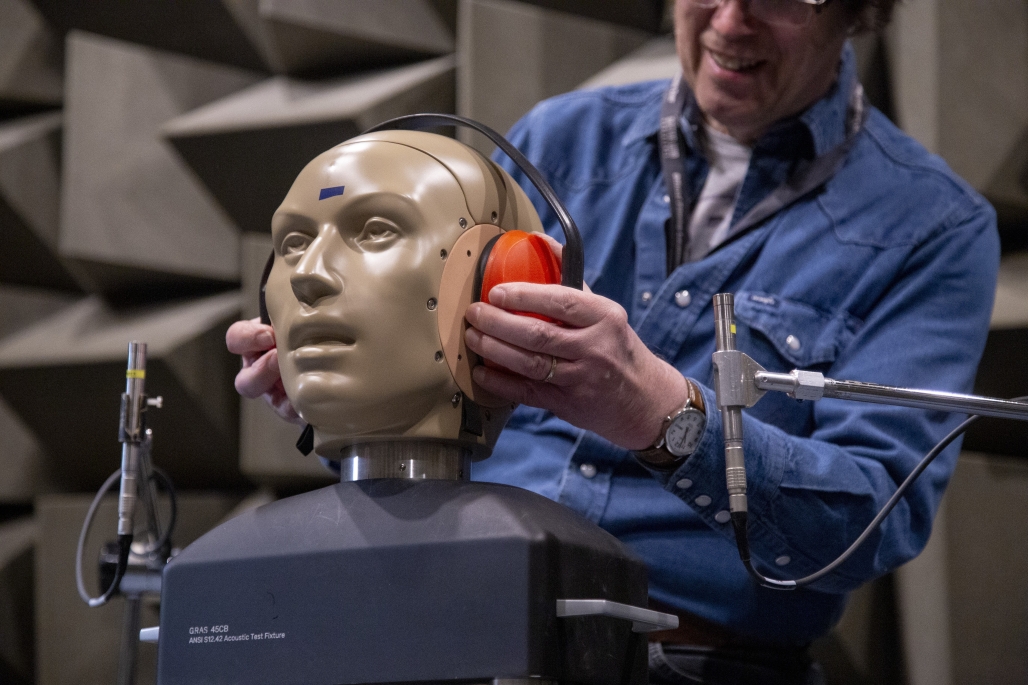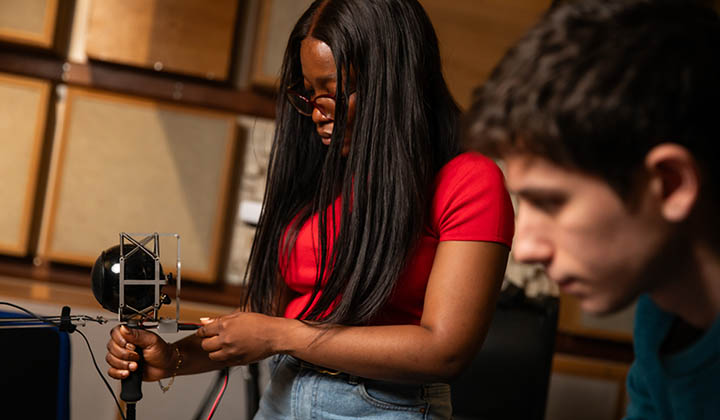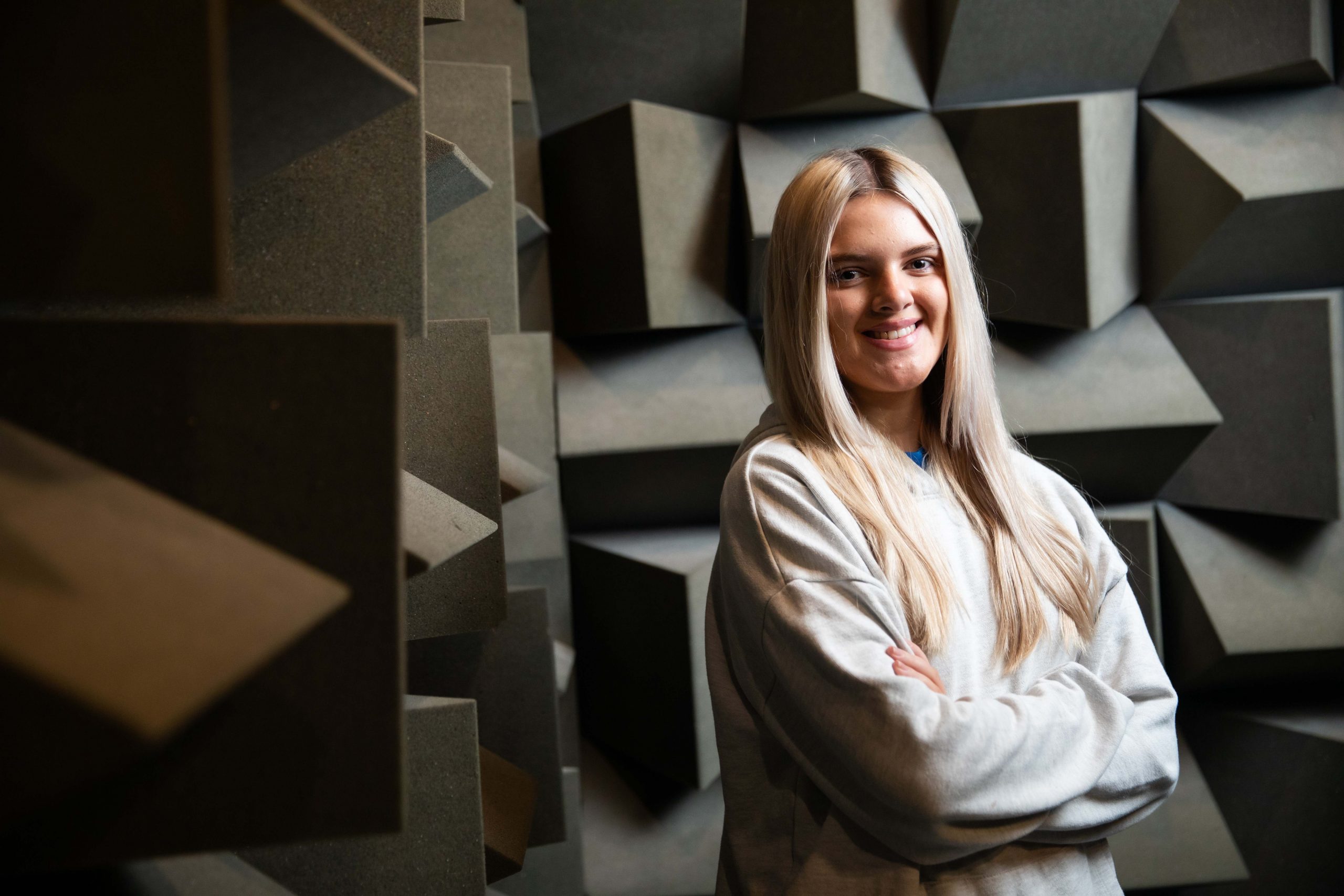The Sustainable Sounds Futures CDT is a leading doctoral training centre, funded by EPSRC in collaboration with the universities of Salford, Sheffield, Bristol, and Southampton. Working with over fifty project partners from industry and government, this initiative delivers an unmatched level of expertise and cutting-edge facilities for Acoustics PhD training.
Our training programme is uniquely designed with students, academics, and industry partners working together to shape its content and direction .
While students gain deep, specialist knowledge in acoustics, the programme also emphasizes a broad set of transferable skills and knowledge of how sound fits into industry, society and the public sector. This combination ensures graduates are not only experts in their field but also equipped to pursue diverse career paths and tackle complex, interdisciplinary challenges.









